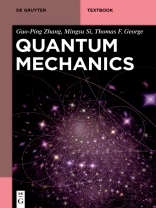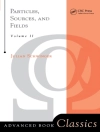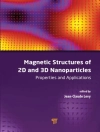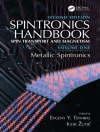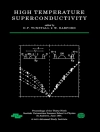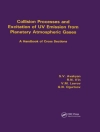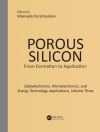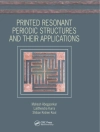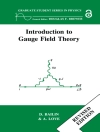This textbook provides ample opportunities for practice and real experimental demonstrations. Conceptual understanding and mastering key techniques are enhanced by rigorous derivations, numerous worked examples, more than 300 exercises, about 150 problems and 16 computer codes. The preface summarizes all of the key concepts and formulas, along with a detailed schedule for teaching.
The first three chapters introduce the quantum idea, wave-particle duality, operators and measurement. The Noether theorem is invoked to introduce the Schrödinger equation, followed by applications to infinite and finite quantum wells, quantum tunneling, harmonic oscillators, Heisenberg equation of motion, uncertainty principle, blackbody radiation and photoelectric effect. Chapters 4 and 5 are on angular momentum, the hydrogen atom and time-independent approximate methods. Chapters 6 and 7 are on spin and time-dependent perturbation theory. Chapters 8, 9 and 10 are on molecular orbitals, energy bands, quantum transport, scanning tunneling microscopy, lattice vibrations, Berry phase and quantum computing.
The book is intended for a one-semester or one-year course and is also appropriate for researchers in related fields.
Yazar hakkında
Guo-ping Zhang is a professor of physics at Indiana State University. He received his B.S. degree from Nanjing Normal University, M.S. degree from Shanghai Jiao-Tong University, and Ph.D. degree from Fudan University. He was a visiting scientist at the Max Planck Institute for the Physics of Complex Systems, with postdoctoral appointments at the Max Planck Institute of Microstructure Physics and the University of Tennessee. He taught for one year at the State University of New York, College at Buffalo.
His research interests include nanoscience, ultrafast dynamics, magnetic and topological quantum materials, femtomagnetism, all-optical spin switching, laser-induced femtosecond demagnetization, soft x-ray spectroscopy, high-harmonic generation, nonlinear optics, Liouville equation, density functional theory and quantum chemistry methods, quantum computing, Alzheimer diseases, conjugated polymers and strongly correlated materials. He has coauthored 140 papers and 4 books. He was the principal investigator on a grant from the U.S. Department of Energy to study laser-induced ultrafast demagnetization. He is the recipient of the Theodore Dreiser Distinguished Research and Creativity Award from Indiana State University.
He enjoys working with students. He is a reviewer for scientific journals and funding agencies.
Mingsu Si is a professor of Physics at Lanzhou University. He received his M.S. and Ph.D degrees in 2003 and 2008 from Lanzhou University, with postdoctoral appointments at Indiana State University and Michigan Technological University. His research interest includes first-principles electronic structure, femtosecond magnetism, and nonlinear optics. He has published 110 research papers.
Thomas F. George (chancellor/professor emeritus) served as chancellor and professor of chemistry and physics at the University of Missouri–St. Louis from 2003 until his retirement in 2019. Prior to that, he was chancellor at the University of Wisconsin–Stevens Point, provost at Washington State University, dean of science at SUNY-Buffalo, and promoted by age 29 to full professor of chemistry at the University of Rochester. He received his B.A. degree (Phi Beta Kappa) with a double major in chemistry and mathematics from Gettysburg College, and his M.S. and Ph.D. degrees from Yale University, with postdoctoral appointments at MIT and UC-Berkeley.
Tom’s specialty is chemical/materials/laser/nanophysics, including nanomedicine. He continues to be an active researcher with 805 papers, 9 authored and 33 edited books. His awards include the Marlow Medal from the Royal Society of Chemistry (UK), Medal of Honor from Gulf University for Science and Technology in Kuwait, and Diploma of Honor from Seinájoki University of Applied Sciences in Finland. He holds honorary doctorates from the University of Szeged in Hungary and Phranakhon Rajabhat University in Thailand, and he is a ember of the Korean Academy of Science and Technology. He is a jazz pianist, performing throughout the world.
